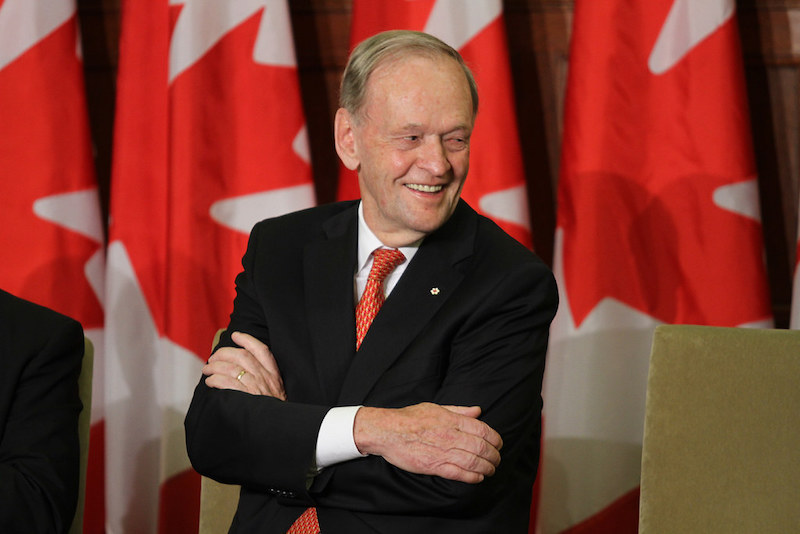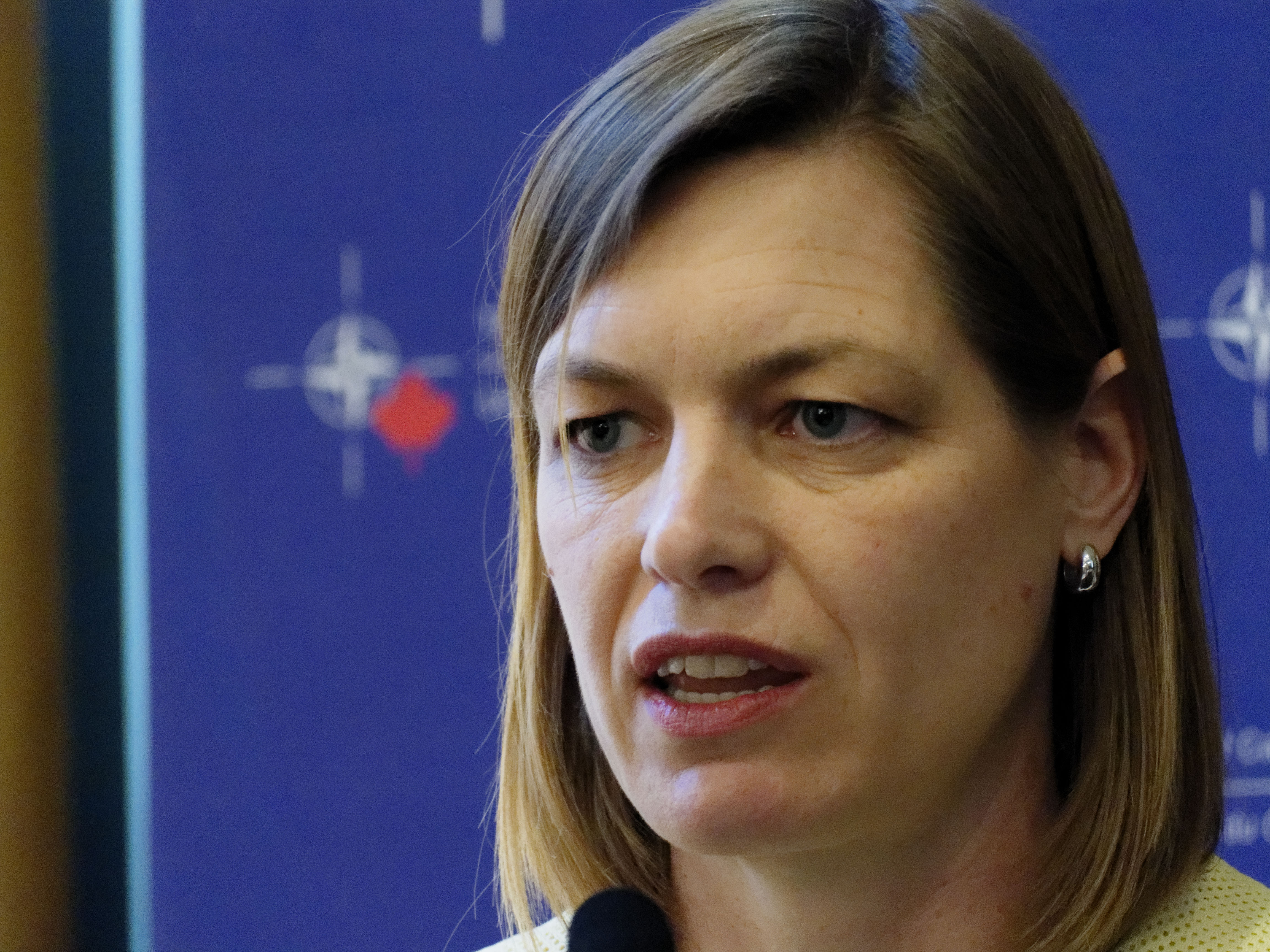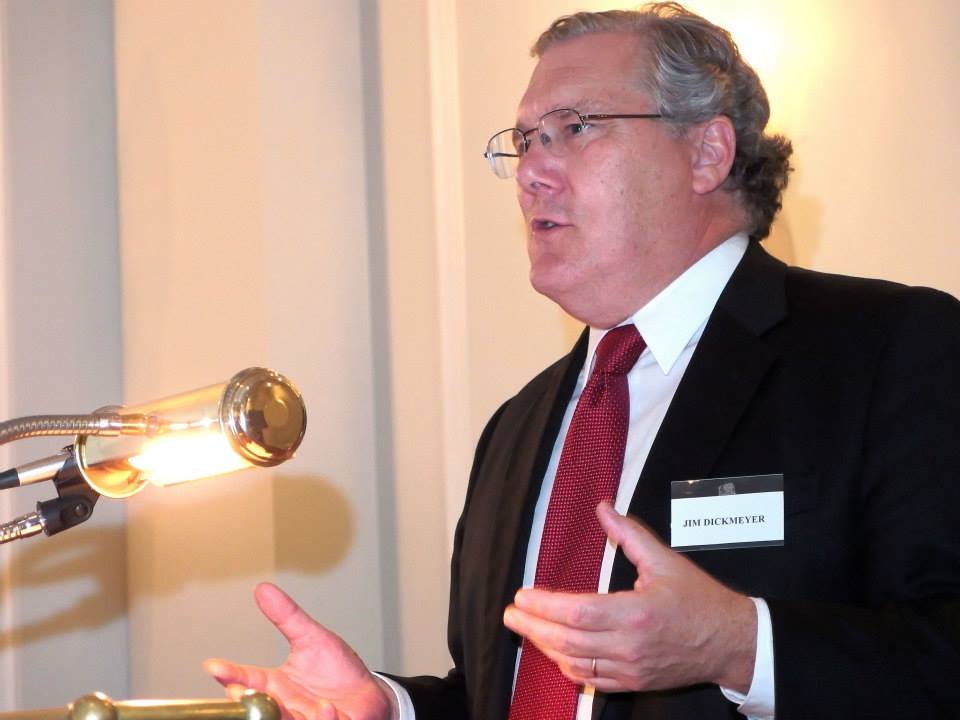Tomorrow, the NATO Association of Canada (NAOC) will honour the contribution of Jean Chrétien, the country’s twentieth prime minister, to the alliance. The first truly post-Cold War prime minister, Chrétien led Canada from 1993 to 2003—a period often remembered for American ascendancy, a lack of great-power competition, and “a sharp unilateral turn,” at least in some countries. The decade nonetheless saw significant international engagement, to which Chrétien contributed. The prime minister worked through multilateral institutions, including NATO, to confront proliferating threats and pursue the many opportunities that emerged from the end of communist rule in Europe and the demise of the bipolar international system.
Chrétien’s arrival at 24 Sussex Drive coincided with a time of introspection about Canada’s involvement with NATO. The need for “collective defence”—a fundamental tenet of NATO—ostensibly vanished with the Soviet Union’s collapse. In 1992, Marcel Masse, then Minister of National Defence, remarked that “many of the assumptions which underpinned our security policy for over forty years are no longer valid.” As a sign of the times, Canadian Forces Europe, which had maintained a decades-long footprint in (West) Germany, departed the next year. By 1998, over one-third of Canadians surveyed in one poll “considered NATO outdated.” Calls for Canada’s exit from the decades-old alliance even issued from iconoclasts like Peter Roberts, erstwhile Canadian ambassador to the Soviet Union.
Of course, these appeals never gained serious traction. On the contrary the decade witnessed what some have deemed “the Canadian rediscovery of NATO.” This transpired, one argument runs, because the alliance’s turn to “cooperative security” helped to harmonize the positions of the Liberal Party and NATO. Consequently, “transatlanticism”—a slippery termperhaps best explained as a sort of shorthand for the common values undergirding relations between North America and Europe—found ample opportunities for expression during Chrétien’s time in office. In fact, some contend that “Ottawa was more engaged with NATO than it had been at any time since the early 1950s.”
Chrétien played an important role in several epochal NATO decisions. By 1994, he had started to advocate extending NATO’s territorial reach into the former Eastern Bloc. Expansion made good sense to the prime minister. “As I saw it,” Chrétien recalls in his memoir, “we in the West had a moral obligation to those countries that had been enslaved by communism to invite them under our umbrella for the sake of military security and economic stability.”
Furthermore, to lure the one-time Soviet satellite states into adopting “democratic” and “market” principles, the West had already dangled the carrot of NATO membership. With these reforms patently underway, Chrétien maintained—then and later—reneging would be wholly unconscionable and strategic folly.
At the Madrid Summit of 1997, Chrétien worked to realize an expanded NATO. In his telling, he enthusiastically endorsed bringing the Czech Republic, Hungary, Poland, Romania, and Slovenia into the alliance. However, the allies did not enjoy unanimity of opinion on the subject, with American and French positions at loggerheads. Invariably sensible (“more pragmatic than blue sky,” according to advisor James Bartleman), Chrétien reportedly took the lead in reconciling the divergent positions at President Bill Clinton’s request. The resultant agreement paved the way for the first post-Cold War expansion. In 1999, the Czech Republic, Hungary, and Poland joined NATO.
Although strategically sound, the cost that Canada would incur for NATO enlargement—contemporary estimates put the sum at $2.1-2.8 billion over 13 years—threatened to stretch an already thin defence budget. As promised in the Liberal Party platform (1993) and on the campaign trail, Chrétien’s government sought to reduce the national deficit by economizing on defence, most notably scrapping a multi-billion dollar Mulroney-era contract to upgrade the country’s aging helicopters. Thus, during Chrétien’s first seven years in power (1993-1999), defence coffers dwindled by 23 percent.
Such cuts also posed problems for multilateral peacekeeping operations, which claimed a share of slender Canadiandefence resources. Of these peacekeeping missions, the crisis in the former Yugoslavia, which had spurred a UN and NATO response by 1992, loomed largest. While initiated by Brian Mulroney, peacekeeping operations in the Balkans became the main destination for Canadian Armed Forces (CAF) members under Chrétien’s watch.
Chrétien appreciated the gravity of deploying CAF personnel to conflict areas. After leaving office, he stated: “It weighs heavily on you, and you reflect on it when you are alone, far away from the cameras and Parliament.” The conflict in the Balkans engendered the same regard. In Chrétien’s memoir, he notes: “I spent a lot of time thinking about Bosnia.” James Bartleman has corroborated claims that, at times, Bosnia dominated the prime minister’s agenda.
According to Chrétien, this pensiveness stemmed from concerns about “our troops.” By December 1994, ten CAF members had died while serving in the former Yugoslavia. Early on, CAF members also endured non-lethal trauma, including beatings and staged executions. The costs escalated as the conflict dragged on and airstrikes commenced. Canadian soldiers soon found themselves not only casualties, but also hostages and “human shields.”
But humanitarian and strategic considerations also help to explain the focus that Chrétien gave to the conflict. He wanted to forestall future acts of systematic and ethnically motivated violence—referred to as “ethnic cleansing” by the UN and NATO—in the region. In addition, Chrétien saw Canadian peacekeeping operations there as “a signal of our commitment to the UN and NATO.”
For these reasons, Chrétien, the White House privately observed, stood “steadfastly behind NATO actions in Kosovo,” where Serbian and Federal Republic of Yugoslavia (FRY) forces had begun indiscriminately victimizing and killing thousands of Kosovar Albanians. In response, Canada engaged in extensive aerial operations, including Operation ECHO in 1999. During the course of that 78-day-long, joint NATO operation, Canadian CF-18 Hornets dropped a bomb payload of roughly 250 tons, or almost 500,000 pounds, on targets within Kosovo, then in the FRY.
The air campaign powerfully demonstrated the willingness of Canada—and NATO—to use force for the purpose of statecraft and humanitarian aims. At the beginning of the airstrikes, Dr. Javier Solana, NATO Secretary General, remarked: “We must stop the violence and bring an end to the humanitarian catastrophe now taking place in Kosovo. We have a moral duty to do so.” Chrétien echoed these sentiments in Parliament, noting “that the time has come to tell the leader of the Republic of Yugoslavia that we cannot tolerate the activities that he is imposing on the people of Kosovo.”
For Canada and NATO, the air campaign yielded large gains. The punishing bombardment, which resulted in no Canadian casualties, brought the embattled president of the FRY, Slobodan Milosevic, to the bargaining table and thus accelerated the end of the devastating, protracted conflict. Furthermore, the campaign enjoyed impressively broad backing in Canada. Despite opposition from some members of the public—perhaps most notably outspoken scholar-turned-activist Michael Mandel—and eventually the NDP, one poll indicated that over three-quarters (79 per cent) of Canadians surveyed agreed with the aerial bombardments.
The events of September 11, 2001 further galvanized united action during the years of Chrétien’s leadership. The day after the attacks, NATO took the unprecedented step of triggering Article 5, the “collective defence” clause. In so doing, “NATO members showed their solidarity toward the United States and condemned, in the strongest possible way, the terrorist attacks against the United States.”
Accordingly, the U.S. began assembling an international coalition, which included non-NATO and NATO members, including Canada, to wage a “Global War on Terror” and invade Afghanistan. This display of global unity was not lost on Chrétien, who commented in a parliamentary address on “NATO speaking as one.” And as a testament to that unity, Chrétien endorsed Canadian military involvement in Afghanistan. Before the year’s end, the CAF had dispatched ships and then troops to the theatre as part of what became Operation APOLLO. Through the International Security Assistance Force, which had NATO backing, Canada maintained combat and training roles in Afghanistan until 2011 and 2014, respectively.
Compared to military operations in the Balkans, Afghanistan exacted a heavier toll for Canada. Political divisions quickly emerged and support for Canadian involvement in Afghanistan declined and eventually cratered, though after Chrétien had left office. By August 2010, polling figures put public disapproval of the war, which eventually claimed 158 Canadian lives and consumed about $18 billion, at over 50 per cent.
For all the talk of unity, Chrétien’s time in office also saw fault lines emerge in the NATO alliance. The so-called Turbot War, which pitted Canada against NATO ally Spain in a heated fishing dispute, occupied much attention and caused lasting rancour. As James Bartleman reported, “Spain, bitter and humiliated, would make us pay a price by throwing roadblock after roadblock into Canada’s efforts to forge closer ties with Europe for years to come.”
Chrétien’s government also occasionally ran afoul of Canada’s most important ally, the U.S. For instance, Chrétien’s Minister of Foreign Affairs Lloyd Axworthy’s campaign to eradicate landmines via the Ottawa Treaty (1997), which the United States has still yet to ratify, bred ill will in Washington. At the prospect of American exclusion from ratification proceedings, Bill Clinton, reportedly fumed about the United States potentially becoming “the skunk at a garden party.”
More significantly, Chrétien rebuffed the American request to participate in the invasion of Iraq in 2003. A host of concerns—the lack of multilateral backing, particularly the imprimatur of the UN, flimsy evidence, and untenable rationales—troubled Chrétien. (Subsequently declassified materials confirmed the soundness of the Canadian positionand, by extension, seemingly vindicated Chrétien.) Moreover, the prospect of another war with Iraqi dictator Saddam Hussein did not sit well with many Canadian policymakers and polled poorly with members of the public.
Chrétien’s refusal precipitated some conservative blowback at home and allegedly stung Washington. In fact, some at the time (and since) deemed President George Bush’s decision to cancel his speech at Parliament Hill in 2003 as an act of retribution for this perceived affront to American dignity. Chrétien and others have insisted that the harm done to the bilateral relationship has been overblown.
Still, even the possibility of causing a rupture with the U.S. required moxie. In a conversation with the author, current NAOC Chair David Collenette, who served as Minister of National Defence from 1993 to 1996, opined that Chrétien “was very brave not to sign on” to the conflict.
Chrétien’s spurning of Washington’s pleas to contribute to the invasion of Iraq might represent his crowning achievement in foreign policy. By taking bold action, or more appropriately inaction, Chrétien spared Canada from participating in a bloody and controversial war labelled a “catastrophe,” “debacle,” “Greek tragedy,” and worse. But Chrétien’s involvement with NATO, especially post-Madrid Summit enlargement and operations in the Balkans, also deserve mention.
Conversely, Chrétien’s decision to commit Canada to the conflict in Afghanistan leaves a more complicated legacy. As with Iraq, “failure” has become a common descriptor for that conflict. Even U.S. General Mark Milley conceded the point last year.
Most commentaries of Chrétien’s policy, though, do not dwell on his short-lived involvement with Afghanistan. Rather, they tend to chide Chrétien for focusing on domestic affairs and thus presiding over Canada’s descent into “international irrelevance.” Former American diplomat David T. Jones, for instance, claimed that Chrétien, undeniably a savvy politician, simply had “a tin ear for foreign affairs.” In another unflattering account, Allan Gotlieb, one-time Canadian diplomat, acerbically noted “a profound lack of coherence” in the realm of foreign affairs and hinted at a flirtation with “isolationism.”
Even some of those more favourably disposed admit the towering influence of domestic factors in Chrétien’s strategic calculus. Scholar Joel Sokolsky, who positively assessed the decade’s military operations, acknowledges that “economics” took primacy of place in the prime minister’s thinking. Likewise, fellow scholar Tom Keating, who argues that Chrétien embraced “a more passive internationalism,” contends that the prime minister’s foreign and domestic policy initiatives, particularly “balancing the books,” proved incompatible.
But the maligned cost-cutting initiatives of the Chrétien government by no means signalled a rejection of internationalism or of the principles on which NATO still rests. Chrétien unquestionably grasped that NATO deepened transatlantic bonds, facilitated cooperation, and furthered the cause of peace. Put another way, although Chrétien’s fiscal policies did not necessarily advantage NATO, he remained dedicated to the transatlantic alliance’s values throughout his decade in power. That support for NATO, in turn, helped to usher in the alliance’s post-Cold War future.
Cover Image: Untitled via Openverse by Michael Ignatieff Licensed CC BY-ND 2.0.
Disclaimer: Any views or opinions expressed in articles are solely those of the authors and do not necessarily represent the views of the NATO Association of Canada.



